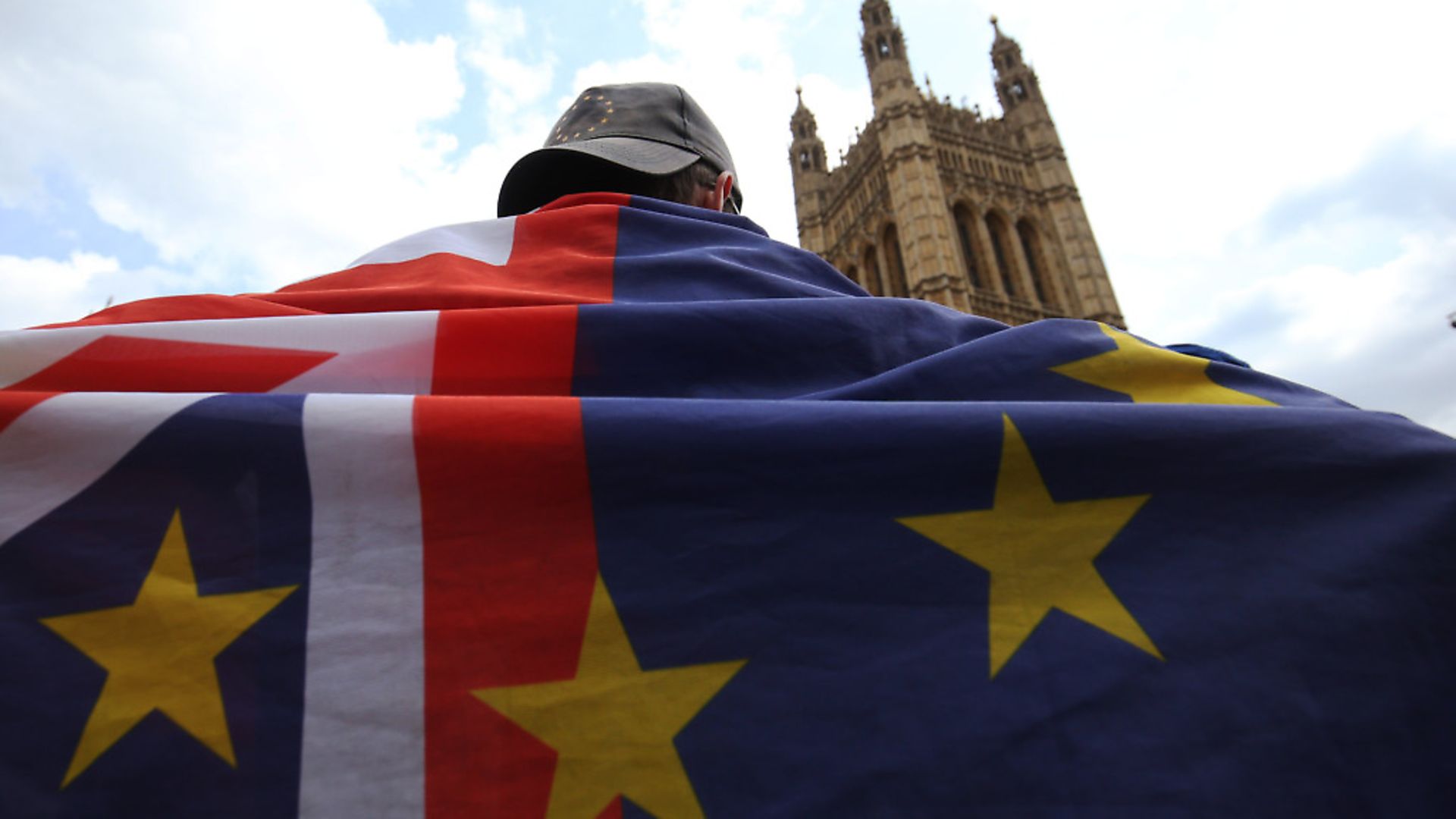
The government is planning a military-style ‘shock and awe’ media campaign to prepare the public for a no-deal Brexit at the end of this year.
The communications drive, which will cost taxpayers £4.5 million, begins in July and will continue through to May 2022 in four planned phases, POLITICO reports.
According to a government strategic communications dossier, campaigners will use behavioural science tactics to stun and spur businesses and the public into action.
Downing Street have hired media agency MullenLowe London to carry out the blitz, which will be rolled out on private communcation channels due to public distrust in government advertising.
The first ‘burst’ of information in July will focus on ‘nudging’ people to prepare for the ‘consequences and opportunities’ of a no-deal Brexit. This will later develop into a full-scale ‘shock and awe’ campaign in September and November.
This will change to messages on ‘loss avoidance’ during December and January and to ‘new opportunities’ promotions from February 2021 onwards.
The media offensive will be drawn up by the same group who were behind the ‘Get Ready for Brexit’ campaign which attempted to prepare businesses for a hard Exit last year.
The initiative comes following dire government polling in October showing that 61% of UK businesses had not yet accessed information on preparing for a no-deal. In fact, up to 74% of adults made no effort at all and planned not to.
‘The Transition Campaign is the most important government campaign this year,’ the document, which was found on a government procurement database, read.
‘With nine months to go, now is the time to ensure that clarity and certainty is communicated wherever possible about what will happen at the end of the year. Therefore we need to frontload preparation wherever possible, and ensure that any early misunderstanding is ironed out and appropriate actions are taken.’
The campaign is part of a five-point plan by the government to prepare the country for a clean break from EU institutions by December 31.
One of those objectives is to convince Brussels officials that the UK was prepared to leave the transition period without a deal. Others focused on minimising short-term disruption and implementing new protocols and procedures.
Warning: Illegal string offset 'link_id' in /mnt/storage/stage/www/wp-includes/bookmark.php on line 357
Notice: Trying to get property 'link_id' of non-object in /mnt/storage/stage/www/wp-includes/bookmark.php on line 37






